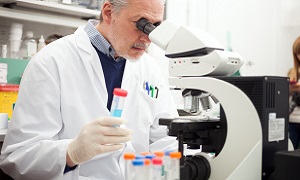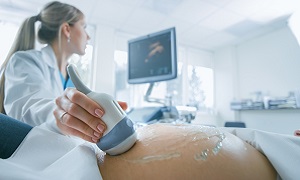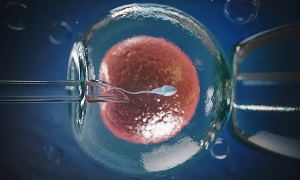Best Doctors in India for Infertility Treatment
Best Hospitals in India for Infertility Treatment
Hospital Highlights:
- Apollo Hospitals is a private healthcare group in India, with its headquarters based in Chennai. Established in 1983 by Dr. Prathap C. Reddy, the group offers a wide range of medical treatments and services across various specialties.
- It is renowned for emphasizing innovation and utilizing cutting-edge medical technologies into patient treatment.
- Known as India’s first corporate hospital, Apollo Hospitals is often credited for pioneering the private healthcare revolution in the country.
- With clinics and hospitals located all throughout India, Apollo Hospitals is a nationwide healthcare organization. Its presence can also be found in foreign countries.
- Preventive health examinations, medical and surgical treatment, and diagnostic centres are just a few of the services that the Apollo group provides.
- The group has several centres of expertise, including Cardiac Sciences, Neurosciences, Orthopedics, Emergency Care, Cancer Care, and Organ Transplantation.
- City: Chennai, India
Hospital Highlights:
- RIMC is a multi-specialty hospital in a sprawling area of 36 acres located in Chromepet, Chennai, Tamil Nadu, India.
- The facility has 450 beds including 130 critical care beds, 9 operating rooms, modern reference laboratories and radiology services, and is conveniently located near road, rail and air transportation.
- RIMC is led and managed by world-renowned physicians committed to healthcare.
- RIMC offers the broadest range of clinical care, education, and research. The hospital offers state-of-the-art technology and modern treatment facilities designed to provide health care at an affordable cost.
- Rela Institute is driven by patient needs, comfort and confidence.
- City: New Delhi, India
Hospital Highlights:
- Fortis Hospital in Shalimar Bagh is a multi-super specialty hospital that strives to provide world-class patient care by leaving no stone unturned.
- Fortis, Shalimar Bagh, with 262 beds and a 7.34-acre footprint, provides the best level of medical care through its team of doctors, nurses, technicians, and management professionals.
- City: Bengaluru, India
Hospital Highlights:
- Established in 2007, the Apollo Hospitals Bangalore is a 300-bed multispecialty hospital situated in Bannerghatta Road, Bangalore.
- Equipped with the state-of-the-art technology, it is a leading hospital dedicated to providing healthcare needs to patients with compassion and expertise.
- It is the first hospital to have completed the highest number of Robot Assisted Heart Surgeries in India.
- Over the years, it has successfully conducted some of the rarest medical procedures such as spinal angiolipoma excision, autologous chondrocyte implantations, and tibial tuberosity shift with MPSL reconstruction.
- The Apollo Hospitals Bangalore has the reputation of performing the greatest series of airway stents in the country.
- Additionally, the hospital is known for providing comprehensive treatment in specialties such as gastroenterology, urology, gynecology, oncology, colorectal surgery, etc.
- The “The Minimal Access Surgery Centre” (MASC), one of Apollo Hospitals, Bangalore’s premier Centres of Excellence, is devoted to the use of minimally invasive surgical procedures.
- In 2013, THE WEEK-A C Nielsen, Best Hospital Survey ranked Apollo Hospitals Bangalore as the 2nd best multi-speciality hospital in Bangalore.
- City: Mumbai, India
Hospital Highlights:
- Gleneagles Global Hospital The 450-bed facility comprises of 17-stories, housing state-of-the-art infrastructure, and advanced medical care facilities.
- The hospital offers end-to-end clinical, surgical, and diagnostic services. It is equipped with a team of eminent medical professionals aided by qualified nurses and medical staff
- The Hospital offers advanced Endoscopic procedures, Hepatobiliary and Liver Surgeries, Surgical and Medical Gastroenterology, Bariatric Surgery, and Robotic surgery.
- The hospital is a center of excellence for Orthopedics, Joint Replacement, Knee Replacement, and Hip Replacement surgery.
- City: Hyderabad, India
Hospital Highlights:
- CARE Hospitals were established in the year 2000, by CARE Group.
- The multispecialty hospital has 435 beds, including 120 critical care beds, with an annual inflow of 180000 outpatients and 16,000 in-patients.
- The hospital provides specialty medical services in Cardiology, Cardiothoracic Surgery, Pediatric Cardiology, Pediatric Cardiothoracic Surgery, Neurology, Neurosurgery, Nephrology, and Urology.
- The hospital has the first dual source, 128 slice CT scanner (for high precision cardiac imaging) – the first of its kind in south India.
- The hospital offers a wide range of accommodation facilities for the convenience of its varied patient base, ranging from general wards to super deluxe rooms.
- City: Mumbai, India
Hospital Highlights:
- Fortis Hospital in Mulund is a 315-bed multi-speciality tertiary care hospital with five JCI accreditations that offers a wide variety of diagnostic and treatment services. The Fortis Hospital in Mulund delivers patient-centred treatment with cutting-edge technology, highly skilled and experienced surgeons, and paramedical staff.
- This institution houses Maharashtra’s largest multi-organ transplant centre. It is also the first heart transplant centre in western India to conduct 100 or more consecutive heart transplants in under four years. It is the only hospital in the city to have multi-organ transplants and has handled the youngest patient for angioplasty. Fortis Hospital Mulund now boasts the first advanced surgical robot in central Mumbai.
- Cardiology and heart surgery, urology, nephrology, neurosciences, orthopaedics, digestive care, emergency and critical care, and maternity care are among the services provided by the hospital.
- City: New Delhi, India
Hospital Highlights:
- Manipal Hospitals, Dwarka, is a super-specialty hospital in Dwarka, New Delhi, which is a part of Manipal Hospitals Group.
- The hospital aims to provide the best treatment on par with international standards at a fraction of the cost.
- Equipped with 380 beds, the hospital is also one of the new age hospitals which are equipped fully with state-of-the-art infrastructure, cutting-edge technology as well as the latest and advanced clinical practices. The hospital also has 13 modular Operation theatres with 118 beds which are solely meant for critical care.
- The hospital comprises internationally acclaimed doctors and highly professional and experienced hospital and medical staff who are able to provide preventive, therapeutic, and diagnostic services all under one roof.
- City: Chennai, India
Hospital Highlights:
- Located in Chennai, India, MGM Healthcare is a top multispecialty hospital that provides all medical services under one roof.
- Since its founding in 2019, MGM Healthcare has quickly become a leading national referral centre, creating several innovative flagship initiatives.
- MGM Healthcare combines next-generation medical and digital technologies to provide better patient results.
- With 12 centres of excellence, more than 400 inpatient beds, 100 intensive care unit beds, and 24/7 emergency care, MGM Healthcare leaves no chance in redefining the patient experience in Chennai.
- MGM Healthcare boasts 250+ expert doctors across 30+ departments, including Cardiology, Pulmonology, Neurology, Obstetrics & Gynaecology, and more.
- They house 12 specialized Centres of Excellence, including Neurosciences, Orthopaedics, and Multi-Organ Transplantation.
- Their team of doctors, nurses, and paramedics works together to give every patient individualized treatment.
Hospital Highlights:
- Lilavati Hospital & Research Centre is India’s premier multi-speciality tertiary care hospital and has been recognised as a global medical excellence centre.
- Lilavati Hospital & Research Centre has built an unrivalled level of trust with its patients over the years, thanks to a solid foundation that comprises cutting-edge facilities, the best medical competence, research, education, and charity endeavours.
- The hospital is quite proud of the fact that it now serves patients from all kinds of backgrounds, not just from the United States but from all around the world.
- The hospital has a total of 323 beds, one of the largest Intensive Care Units (ICUs), 12 Operation Theatres with modern amenities, over 300 consultants, and almost 1,800 personnel.
Infertility
Infertility is a condition when the female partner is unable to get pregnant, despite multiple attempts. In the US alone, around ten to fifteen percent of couples are known to be infertile.
Infertility may be due to an issue with either you or your partner, or it could also be due to a combination of factors that are preventing pregnancy. However, there are several safe as well as effective therapies that are able to improve your or your partner’s chances of getting pregnant.
Symptoms
Pregnancy not occurring is the main symptom of infertility. Although there are generally no other obvious symptoms, a woman suffering from this condition might have irregular or absent menstrual periods. Men suffering from infertility might also show a few signs such as hormonal problems, changes in hair growth as well as sexual function.
In most cases, couples are able to conceive without any treatment.
For women, you should consider seeing a doctor about infertility issues if you have been unsuccessfully trying to get pregnant for over a year. You might consider seeing your doctor earlier if you:
- Are age 35 or older and have been trying to conceive for six months or longer
- Are over the age of 40
- Have very painful periods
- Have known fertility problems
- Have irregular or absent periods
- Have been diagnosed with conditions such as endometriosis or pelvic inflammatory disease
- Have undergone treatment for cancer
- Have had multiple miscarriages
For men, you should consider seeing a doctor if you have or experience:
- A low sperm count or any other problems with sperm
- A history of testicular, prostate, or sexual problems
- Other members of your family having infertility problems
- Having undergone treatment for cancer
- Small testicles or swelling in your scrotum
Causes of Male Infertility
Generally speaking, in men, infertility is related to the following:
- Effective production of sperm
- Sperm count, or the number of sperm
- Sperm shape
- Movement of the sperm
There are a variety of risk factors as well, related to infertility in men, which include:
- Older age
- Obesity
- Smoking Cigarettes
- Excessive use of alcohol
- Exposure to toxins such as heavy metals, pesticides, and herbicides
Few medical conditions also exist, that can cause male infertility. They include:
- Retrograde ejaculation
- Varicocele, or the veins around your testicles swelling
- Testicles that haven’t descended into your scrotum
- Having antibodies that attack your sperm, eventually destroying them
- A hormonal imbalance, such as low production of testosterone
Various medications and drugs are also there, which lead to male fertility. They include:
- Chemotherapy or radiation therapy, which are cancer treatments
- Medication which is used for rheumatoid arthritis (RA) or ulcerative colitis (UC)
- Recreational drugs like marijuana and cocaine
- Anabolic steroids, which can help in improved athletic performance or hormonal issues like delayed puberty
- Calcium channel blockers used for high blood pressure
- Tricyclic antidepressants
Causes of Female Infertility
Various factors can lead to female infertility, which can affect or interfere with the following biological processes:
- Ovulation, which occurs when the mature egg is released from the ovary
- Fertilization, which occurs when the sperm meets the egg in the fallopian tube after it has traveled through the cervix and uterus
- Implantation, which occurs after a fertilized egg attaches to the lining of the uterus where it is then able to grow as well as develop into a baby
Some of the risk factors for female infertility include: - Increasing age
- Excessive use of alcohol
- Smoking cigarettes
- Being obese, overweight, or significantly underweight
- Sexually transmitted infections
There are also a variety of medical conditions which can lead to infertility, such as:
- Ovulation disorders, which may be caused by hormonal imbalances or polycystic ovary syndrome (PCOS), or pelvic inflammatory disease
- Endometriosis
- Uterine fibroids
- Premature ovarian failure
- Scarring caused by a previous surgery
There are also certain medications as well as drugs which can affect female infertility such as:
- Chemotherapy or radiation therapy
- Antipsychotic medications
- Using high-dosage non-steroidal anti-inflammatory drugs for long-term
- Recreational drugs like cocaine and marijuana
Diagnosis
Before testing for infertility, your doctor or healthcare provider is going to work to understand your sexual habits, and might also make recommendations to help to improve chances of pregnancy. In some infertile couples, sometimes, infertility is unexplained.
It is important to note that evaluation for infertility can be expensive, and sometimes can involve procedures that are uncomfortable. There is also no guarantee that after all the testing and treatment, pregnancy is going to occur.
Tests for men
In order for a man to be fertile, it is important for the testicles to produce healthy sperm, and that the sperm is ejaculated effectively into the vagina, and then travel to the egg. Tests for male infertility generally attempt to determine if any of these processes are impaired.
Some of the tests can include semen analysis, genetic testing, hormone testing, testicular biopsy, imaging as well as any other testing.
Tests for women
For women, fertility relies on the ovaries releasing eggs that are healthy. The reproductive tract must allow the egg to pass into the fallopian tubes, and then join with the sperm, so that the fertilization can take place. Your doctor can recommend a general physical exam, as well as few other tests such as ovulation testing, ovarian reserve testing, imaging tests, etc.
Treatments
If despite multiple attempts, a couple is unable to achieve pregnancy, then treatment is an option. The type of treatment that your doctor might recommend might depend on a variety of factors, such as:
- The cause of infertility, if known
- The overall health of you as well as your partner
- How long you’ve been trying to conceive
- Age
For Men
Male infertility is treatable in various ways, depending on the cause. Generally, surgery, medication and assisted reproductive technology are the main treatment options.
Medications
Surgery
Surgery helps to fix obstructions that prevent sperm from being present in the ejaculation. It might also help in correcting medical conditions such as varicocele. Sometimes, sperm is retrieved from the testicles directly, after which it is used in treatments with assisted reproductive technology.
Assisted reproductive technology
Assisted reproductive technology generally refers to treatments in which eggs and sperm and handled outside the body. It includes treatments such as in vitro fertilization (IVF), sperm injection, or intracytoplasmic sperm.
For Women
Although surgery can be used to treat female infertility as well, it has become quite rare now due to advancements in other fertility treatments. Surgery can improve fertility by:
- Correcting an abnormally shaped uterus
- Removing fibroids
- Unblocking fallopian tubes
Reproductive assistance
Reproductive assistance involves methods such as intrauterine insemination and assisted reproductive technology. Intrauterine insemination involves injecting millions of sperm into a woman’s uterus near the time of ovulation.
IVF
Medications
Prevention
Having regular intercourse several times around the ovulation time can increase the chances of pregnancy. It is also noteworthy that all types of infertility are not preventable.
For men, it is important to avoid using too much tobacco, alcohol, or any such drugs, as well as any medications that can impact fertility. It Is also advisable to avoid high temperatures in hot tubs and hot baths, as well as avoid exposure to any kind of industrial or environmental toxins. Regular exercise can also help in improving sperm quality.
For women, it is important to quit smoking, reduce or stop the intake of alcohol, and also limit caffeine. Regular exercise is also important and can prove to be extremely beneficial.

















